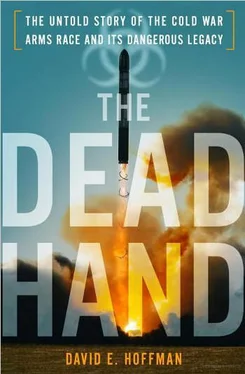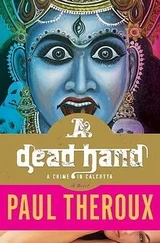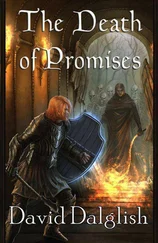Reagan then replied to Gorbachev rather formally, reading from his cards. They used consecutive translation, which meant each remark was translated after it was spoken, which took time. Reagan’s presentation repeated the idea in his July 25 letter that once his Strategic Defense Initiative was ready, he would share it, and the ABM treaty would disappear, replaced by a new agreement, while both sides would reach “total elimination of strategic missiles.” From this very first exchange, Reagan clung tenaciously to his vision.
At the first break, “excitement was in the air,” Shultz said. He realized that Gorbachev had offered extraordinary and unexpected concessions. “He was laying gifts at our feet,” Shultz said. Shultz and other U.S. officials crowded into the secure “bubble” at the embassy, a small, vaultlike soundproof enclosure. Reagan then joined them, joking, “Why did Gorbachev have more papers than I did?” Nitze said, “This is the best Soviet proposal we have received in 25 years.”
In the afternoon session, Reagan and Gorbachev debated the 50 percent cut in weapons. Gorbachev wanted a simple 50 percent slash, while Reagan was worried that it would still leave the Soviets with advantages. But their talk was businesslike, and Gorbachev passed to Reagan a data sheet of Soviet weapons. “Let us cut this in half,” he said. “You are troubled by our SS-18 heavy missiles, and they will be reduced by 50 percent.” They agreed to leave the details to their staffs to hammer out overnight. Then Reagan returned to his missile defense dream. He told Gorbachev that it would “make missiles obsolete,” and “provide a guarantee against the actions of any madman,” and is “the best possibility for ensuring peace in our century.” Gorbachev took the lecture in stride, but he had heard it all before, and Reagan was giving no ground at all on Gorbachev’s demand to keep the research in the laboratory.
Gorbachev’s temper flared, and he warned Reagan that if he built the Strategic Defense Initiative, there would be a Soviet response—an “asymmetrical” one. He did not say what it would be, only that it would be “different.”
Reagan apparently did not realize that Gorbachev, in talking about a response, was contemplating a massive, offensive assault of nuclear warheads to overwhelm Reagan’s defenses. Rather, Reagan imagined Gorbachev’s system as something benign, like his own. “If you find that you have something a little better, then perhaps you could share it with us,” Reagan suggested.
“Excuse me, Mr. President,” Gorbachev replied sternly, “but I do not take your idea of sharing SDI seriously. You don’t want to share even petroleum equipment, automatic machine tools or equipment for dairies, while sharing SDI would be a second American revolution. And revolutions don’t occur all that often. Let’s be realistic.”
They decided to continue the next day, Sunday, which had not been part of the original plan—and ordered their staffs to work all night on compromises. 64
———
Shultz later recalled that “the whole nature of the meeting we had planned at Reykjavik had changed.” Instead of a quick meeting, it was now becoming a full-scale summit. Through the night, American and Soviet officials sought common ground. The conditions were trying; without photocopying machines, they used carbon paper. Two U.S. officials, Colonel Bob Linhard of the National Security Council staff, and Richard Perle, an assistant secretary of defense, had nowhere else to work, so they put a board on a bathtub and got down to business. One of the surprises of the marathon overnight talks was that the U.S. officials for the first time got to know Akhromeyev, the chief of the General Staff who had pledged to help Gorbachev, and they found him to be a formidable negotiator. At one point, in an informal moment, Akhromeyev told Shultz, “I’m the last of the Mohicans.” When Shultz asked what he meant, Akhromeyev said he was the last active Soviet commander who had fought the Nazis in World War II. Shultz then asked him where he had learned the phrase. “In boyhood,” Akhromeyev said. “I was raised on the adventure tales of James Fenimore Cooper.” Shultz recalled that Akhromeyev seemed “far more at ease with himself, more open, more ready for real conversation” than earlier Soviet negotiators. 65
By morning, as a result of the dramatic all-night conversations, breathtaking agreements to slash nuclear arsenals were drafted on paper. If the summit had just stopped there, if the two leaders had signed the papers, it would have been the climactic turnaround of the arms race. The Euromissiles would be dismantled except for one hundred on each side, and long-range or strategic weapons cut by 50 percent, a stupendous achievement when compared with the strategic arms treaties negotiated by Nixon and Carter. The 1972 SALT I accord, for example, had only put a freeze on missile launchers; now Reagan was slicing into the metal of the feared SS-18. Reagan agreed to negotiations on a nuclear test ban, too.
“We were getting amazing agreements,” Reagan later wrote in his memoirs. “As the day wore on, I felt something momentous was occurring.” 66
But then Gorbachev turned up the heat. “Now I am testing you,” Gorbachev said, as he insisted they take up missile defense. He told Reagan that he wasn’t demanding that he abandon his dream, just keep it in the laboratory. This meant Reagan could “show the idea is alive, that we are not burying it,” Gorbachev said. But Reagan would not budge. “The genie is already out of the bottle. Offensive weapons can be built again. I propose creating protection for the world for future generations, when you and I will no longer be here.”
Gorbachev begged for a concession. “As the American saying goes, it takes two to tango,” he insisted.
Soon, perhaps out of fatigue, the two leaders began to shadow-box with their old slogans. Reagan brought out his Marx and Lenin aphorisms, and Gorbachev replied disdainfully, “So you are talking about Marx and Lenin again.” For his part, Gorbachev bristled at the memory of Reagan’s 1982 speech at Westminster, and the prediction that the Soviet Union would wind up on the ash heap of history. “I will tell you, that is quite a terrifying philosophy,” Gorbachev said. “What does it mean politically, make war against us?”
“No,” Reagan replied.
Then, almost as quickly, they gave up and turned back to the danger of nuclear weapons. Reagan launched a defense of his dream. “It appears at this point that I am the oldest man here,” Reagan said. “And I understand that after the war the nations decided they would renounce poison gases. But thank God that the gas mask continued to exist. Something similar can happen with nuclear weapons. And we will have a shield against them in any case.”
Exasperated, Gorbachev concluded, “The president of the United States does not like to retreat.” He seemed resigned to failure. “I see that the possibilities of agreement are exhausted.”
They didn’t give up, however. Gorbachev hammered away at the idea of keeping missile defense confined to the laboratory. Reagan was alternately insistent and unfocused. He told Gorbachev, “I can imagine both of us in ten years getting together again in Iceland to destroy the last Soviet and American missiles under triumphant circumstances. By then I’ll be so old that you won’t even recognize me. And you will ask in surprise, ‘Hey, Ron, is that really you? What are you doing here?’ And we’ll have a big celebration over it.”
“I don’t know whether I will live till that time,” Gorbachev said.
“I know I will,” Reagan replied.
During a break, Shultz attempted to craft new language in an effort to keep alive the hope of some kind of agreement. Reagan offered it to Gorbachev: a ten-year commitment to the ABM treaty, during which there would be “research, development and testing” of missile defenses.
Читать дальше












